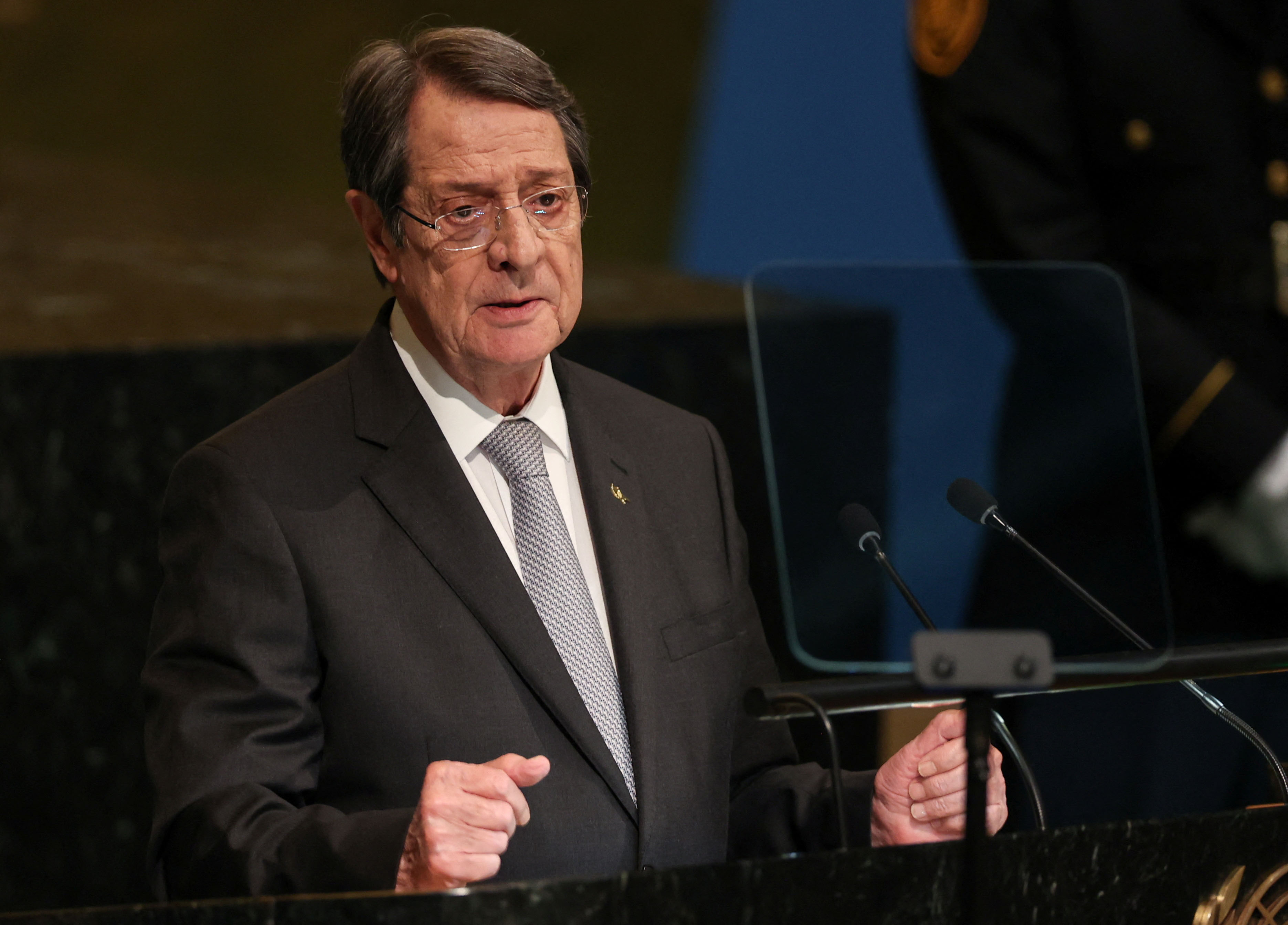President Nicos Anastasiades’ last address to the UN General Assembly was in effect an address to Greek Cypriot public, in which he crudely avoided taking the smallest bit of responsibility for leading the country to partition. The “dismal lack of effectiveness” of the UN was to blame for Cyprus’ predicament, as was “the inability to fulfil the aims of the UN Charter,” he told the General Assembly on Friday.
The message for Greek Cypriots, seeing the occupied part of Cyprus being turned into a province of Turkey in all but name, was that Anastasiades was blameless. He was just a weak and powerless bystander, waiting for the UN to implement international law and international agreements and to remove the Turkish troops from Cyprus by issuing a resolution. “Why do the decisions of the Security Council remain in their overwhelming majority sheer certificates attesting violations,” he asked.
This is the sort of question a political science undergraduate would ask, not a president of 10 years, with decades of experience of the Cyprus problem. Has Anastasiades learned nothing about how the UN operates in his 40 years in politics? Does he remain under the illusion that the world is governed by Security Council resolutions? The man he claimed was his spiritual father, Glafcos Clerides always said that no matter how many favourable UN resolutions the Republic secured, the settlement of the Cyprus problem would be the result of negotiations and compromise.
Anastasiades had this opportunity in 2017 and spurned it, abandoning the talks in Crans-Montana, despite, according to his chief negotiator, being a hair’s breadth away from a settlement. The UN Secretary-General, the EU, the guarantor powers were all present supporting the process, Turkey had made significant concessions on guarantees, troop withdrawal and territory, but Anastasiades still packed his bags and left, blaming Turkey’s intransigence. His priority was a securing a second term.
His narrative about Turkish intransigence may have been accepted by most Greek Cypriots, but the outside world knew who was to blame for the collapse of the process – nobody attributed failure to the dismal lack of effectiveness of the UN – and has given up all interest in Cyprus. Worse still, the Anastasiades stance in Crans-Montana provided Turkey with a strong argument for a two-state solution. As the Greek Cypriots would not agree to bizonal, bicommunal federation there was no point in any more negotiations.
Anastasiades knows that he blew the last opportunity to avert partition, but he does not want to be remembered as the president who handed over the north of the island to Turkey. The UN is to blame for this, as he clearly explained in his address to the UN General Assembly.







Click here to change your cookie preferences